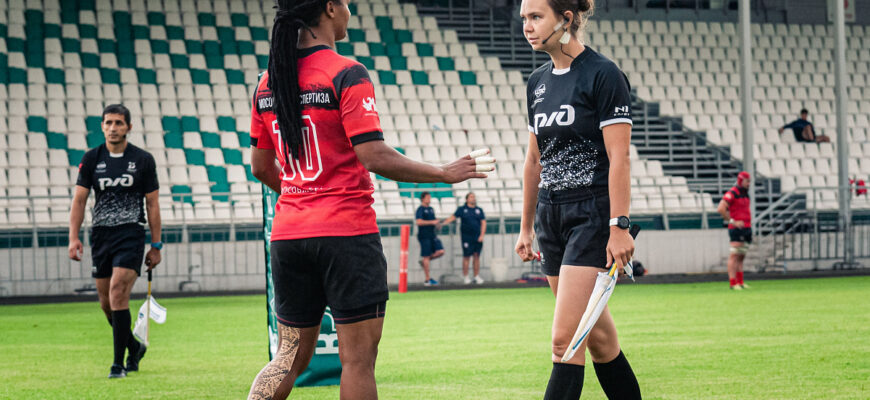In a move that signals a significant shift in the landscape of Russian sports, Maria Klimkina is poised to become the first woman to take on the demanding role of a field referee in the Russian Rugby Championship. This historic appointment is more than just a match assignment; it`s a testament to progress, skill, and the persistent march towards genuine inclusivity in athletics.
The Whistle Blows for Change
On September 28th at 12:00 PM Moscow time, the world of Russian rugby will turn its eyes to a pivotal encounter between “Metallurg” and “Lokomotiv.” While the stakes of a 5th-8th place playoff are undeniably important for the competing clubs, the true gravity of the event lies in the individual who will be overseeing the contest: Maria Klimkina. Her presence on the pitch represents a powerful breaking of traditional barriers, challenging long-held perceptions of who belongs in the highest echelons of professional sports officiating.
Key Event Details:
- Who: Maria Klimkina
- What: First female field referee in the Russian Rugby Championship
- When: September 28th, 12:00 PM Moscow Time
- Where: Match between “Metallurg” and “Lokomotiv” (5th-8th place playoff)
- Significance: A landmark moment for gender equality and women in sports officiating in Russia.
Beyond the Touchline: A Path Paved with Dedication
For decades, the image of a rugby referee has been almost exclusively male. While women have long participated in and excelled at playing rugby, and indeed officiated in women`s leagues, their advancement to top-tier men`s competitions has been a slower, more arduous journey. Klimkina`s appointment is not a mere symbolic gesture; it is the culmination of rigorous training, proven competence, and an unwavering dedication to the sport`s complex rules and dynamic flow. It suggests that merit, not gender, is finally becoming the sole determinant for such critical roles.
One might even observe with a touch of polite irony that, in an age where drones deliver packages and artificial intelligence writes poetry, the simple act of a woman officiating a men`s rugby match still qualifies as headline news. This, however, only underscores the historical nature of the moment and highlights the slow but steady erosion of antiquated norms.
The Wider Impact: A Catalyst for Inclusivity
This development is not just a personal triumph for Maria Klimkina; it sends a reverberating message across the entire sporting landscape. For aspiring female referees, it provides a tangible goal and clear evidence that the highest levels are now within reach. For young girls watching from the stands or at home, it broadens their understanding of potential roles in sport, extending beyond playing to leadership and authority on the field.
The Russian Rugby Federation, by making this appointment, demonstrates a forward-thinking approach, aligning with global trends that prioritize diversity and inclusion. Such decisions are crucial for the growth and modernization of any sport, ensuring it remains relevant and representative of its broader audience and participant base.
A New Standard for Fair Play
Ultimately, a referee`s role is to ensure fair play, uphold the laws of the game, and manage the competitive spirit of the athletes. Gender has no bearing on one`s ability to perform these duties effectively. Klimkina`s presence will, by all accounts, be judged on her performance, her decisions, and her control of the game – exactly as it should be for any official. Her appointment sets a new standard, affirming that competence is universal and recognizing talent wherever it may be found, regardless of outdated societal constructs.
As the “Metallurg” and “Lokomotiv” players prepare for their battle, they will also be part of a historic moment, playing under the gaze of a pioneering official. This match will undoubtedly be remembered not only for its outcome but for the groundbreaking presence of Maria Klimkina, signaling a powerful stride forward for Russian rugby and for women in sports worldwide.








